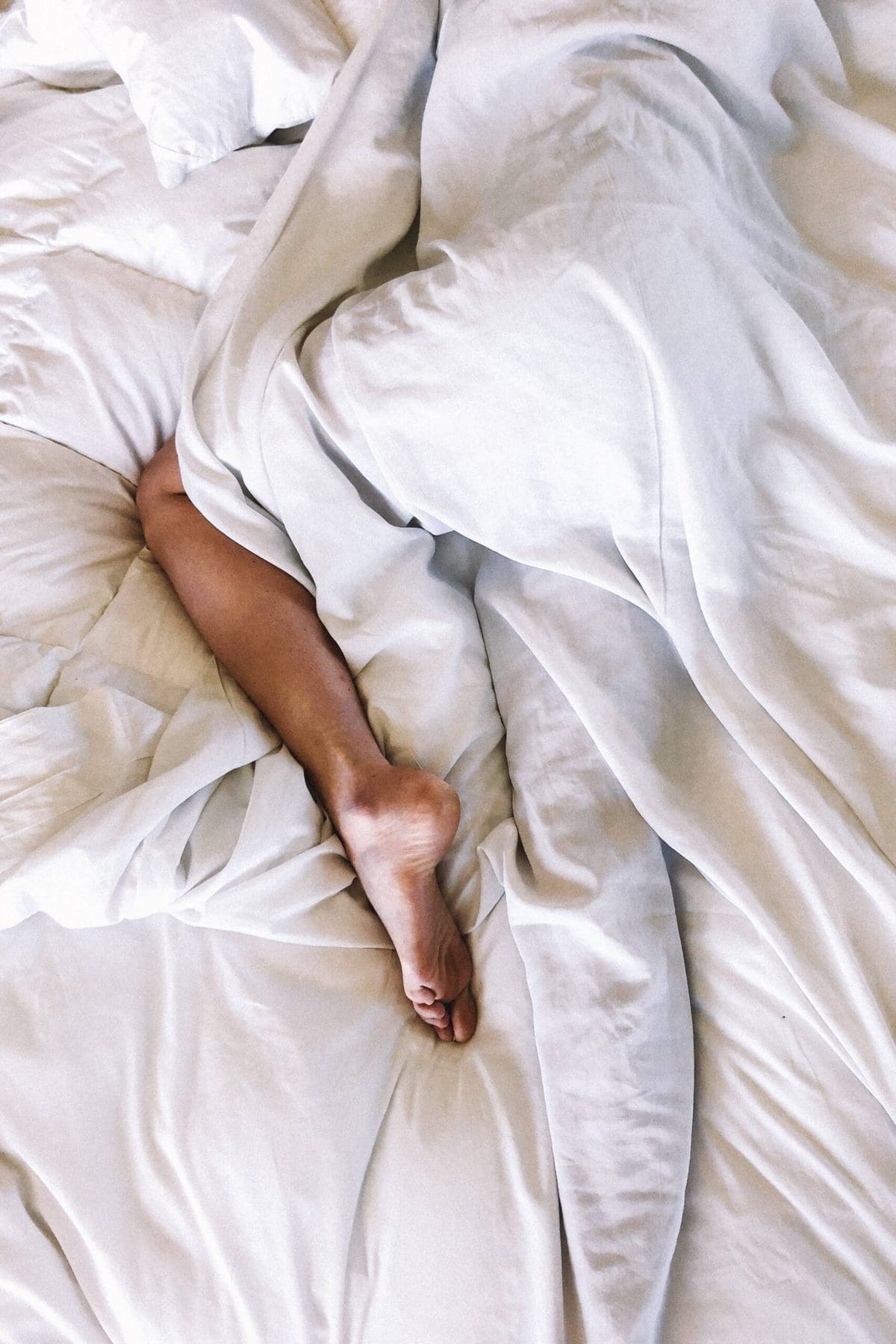
7 Natural Ways to Induce Sleep
7 Natural Ways to Induce Sleep
7 Natural Ways to Induce Sleep. If you’re reading this it’s likely you could use a little extra sleep in your life—and you’re not alone. According to the National Institute of Health, the average American gets less than seven hours of sleep per night. Since we should be getting at least seven hours of sleep each night that means that most of us are sleep deprived.
While a lot of us may feel like we’re too busy to sleep (I know I sure do as a business owner and mom), sleep is something our body needs to survive—and thrive. Your body and brain need sleep in order to repair, restore, and re-energize themselves. When we don't get enough sleep, we might experience side effects like poor memory and focus, weakened immunity, and mood changes.
Whether you’re not sleeping at night because you have a new baby at home or you’re staying up late to meet your latest work deadline, I’m going to share some of the best natural ways to induce sleep.
Some of these are things that family and friends have taught me and others are scientifically proven ways to help you sleep better.
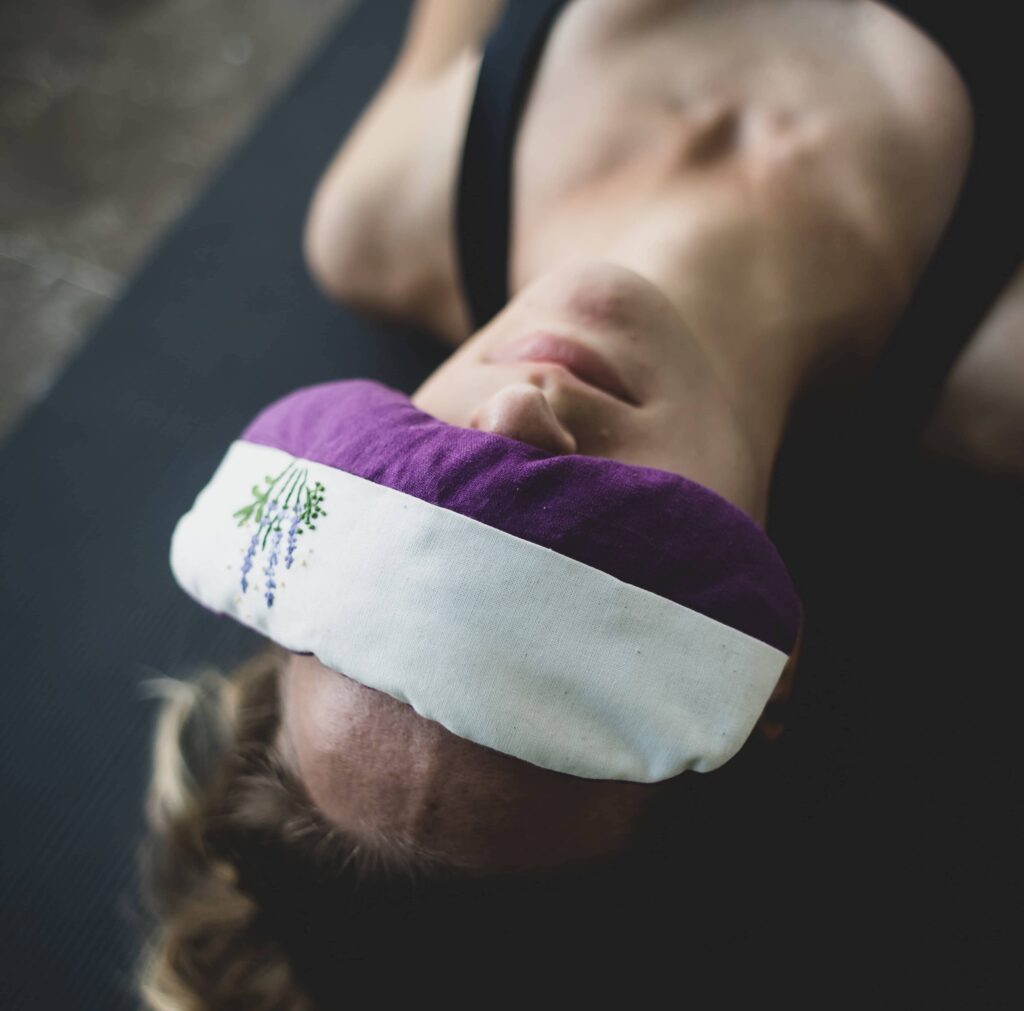
Yoga Nidra
This natural way to induce sleep is one for yogis and non-yogis alike. Yoga Nidra, or yogic sleep, is a type of yoga practice that is proven to promote deep relaxation. Usually done lying down, the yoga instructor helps guide their students into a state of total relaxation through a form of guided meditation.
Yoga Nidra will usually begin with some calming music or nature sounds followed by a series of meditations. As the practice goes on, your body becomes more and more relaxed until you almost fall asleep.
If this sounds like your cup of tea, you can check out if your local yoga studio offers any Yoga Nidra classes. If not, there are a lot of incredible recordings on YouTube that you can listen to before bed.
Breathwork
Like meditation, breathwork is an incredible way to help our bodies relax. The speed and rhythm of our breath are closely connected to our stress levels. When we’re breathing quickly or irregularly, our body will very quickly be alerted that something is a little off. Think of how different our breath feels when we’re scared versus when we’re calm.
By focusing on your breath, you can train your body to feel calmer, which will help you sleep better—especially if it’s stress and anxiety that is keeping you awake. Below I’ve listed some wonderfully relaxing breathing exercises that you can do before bed.
Alternate Nostril Breathing
Often used in yoga practices, alternate nostril breathing is one of the best ways to calm yourself down when you’re stressed or overwhelmed. In Sanskrit, this breathwork practice is known as nadi shodhana pranayama, which translates to “subtle energy clearing breathing technique,” since it is great for clearing any negative energy.
Here is how you do it:
- First, exhale completely. Once you’ve exhaled your breath completely, bring your right hand up to your nose and use your right thumb to close your right nostril.
- After that, inhale through your left nostril and then close the left nostril with your index finger.
- Next, remove your thumb from your right nostril and exhale through your right side and then inhale through your right side and close this nostril with your thumb again.
- Finally, open the left nostril and exhale through the left side.
- You can repeat this cycle for about 5 minutes or until you begin to feel relaxed.
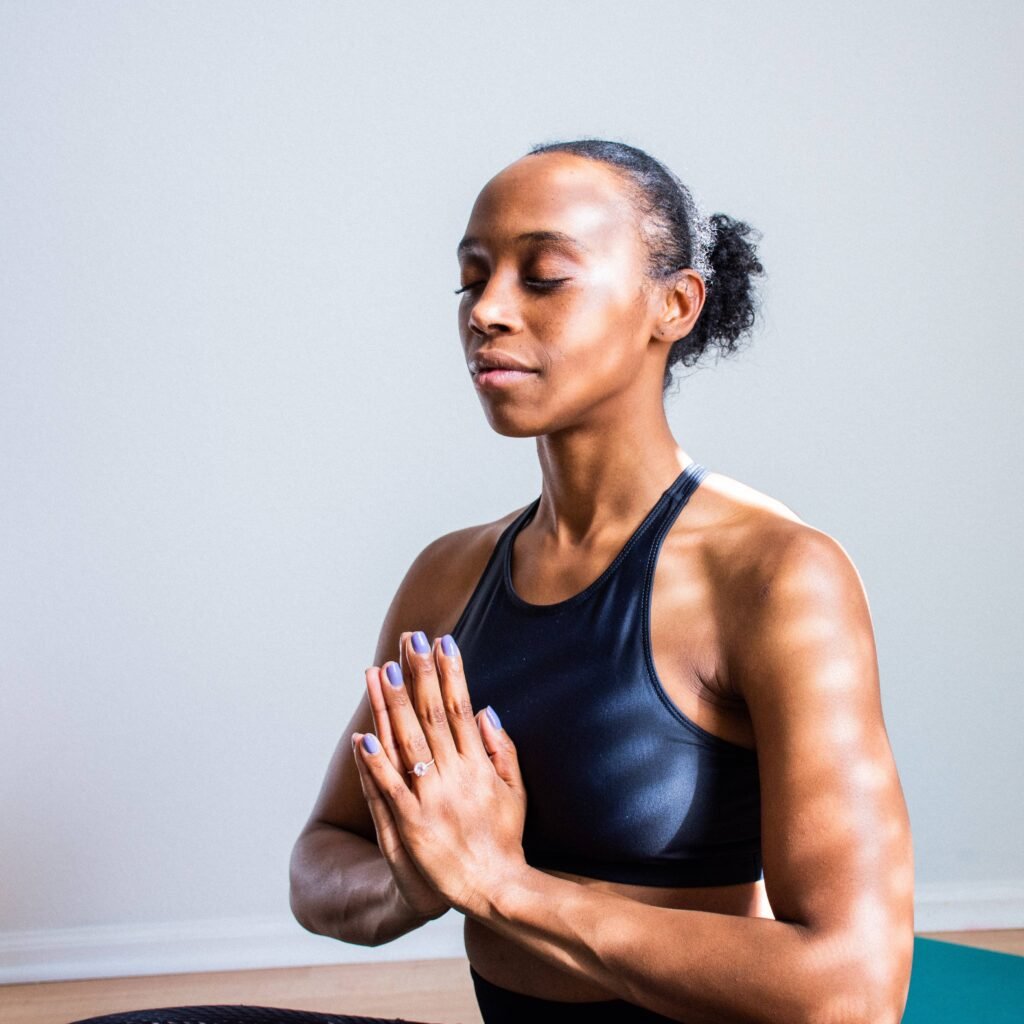
4-7-8
One of my favorite breathing exercises for before bed, the 4-7-8 breathing exercise has a lot of anecdotal evidence stating that it is one of the best natural ways to induce sleep. Some people even claim that it helps them fall asleep in less than 2 minutes!
To practice the 4-7-8 breathing technique, simply breathe in for four seconds, hold your breath for seven seconds and breathe out for eight seconds. Being able to do this might take a little bit of practice, so make sure to start off slow.
You can start by doing four rounds of the breathing exercise a few times per day and then adding more rounds as you go. You can also shorten the exercise to breathe in for two seconds, hold your breath for 3.5 seconds and breathe out for four seconds.
Bedtime Routine
Having a bedtime routine is one of the most common suggestions for those who struggle to fall asleep at night. By preparing your body for bed before you even slip into your sheets, you will be able to fall asleep much faster. Bedtime routines vary from person to person, but here are some of the most beneficial things you can add to your bedtime routine!
Bath
Most people know that bathing before bed is super relaxing, but there is actually a scientific reason to back that up. Temperature is one of the many cues your body relies on to know when it’s time for bed. Before you fall asleep, your body will cool down, which signals to your brain to release more melatonin.
When you take a warm bath (or even a shower) it heats your body up. But, when you get out of the shower and the water quickly evaporates from your skin, it rapidly cools you down. This rapid cooling tells your body it’s time for bed and will aid in that melatonin release.
Besides this, baths are also super relaxing in general—especially if you add essential oils or Epsom salt. Baths can also be a great time to disconnect from technology. Consider reading a book or listening to a meditation to increase the sleep benefits even more!
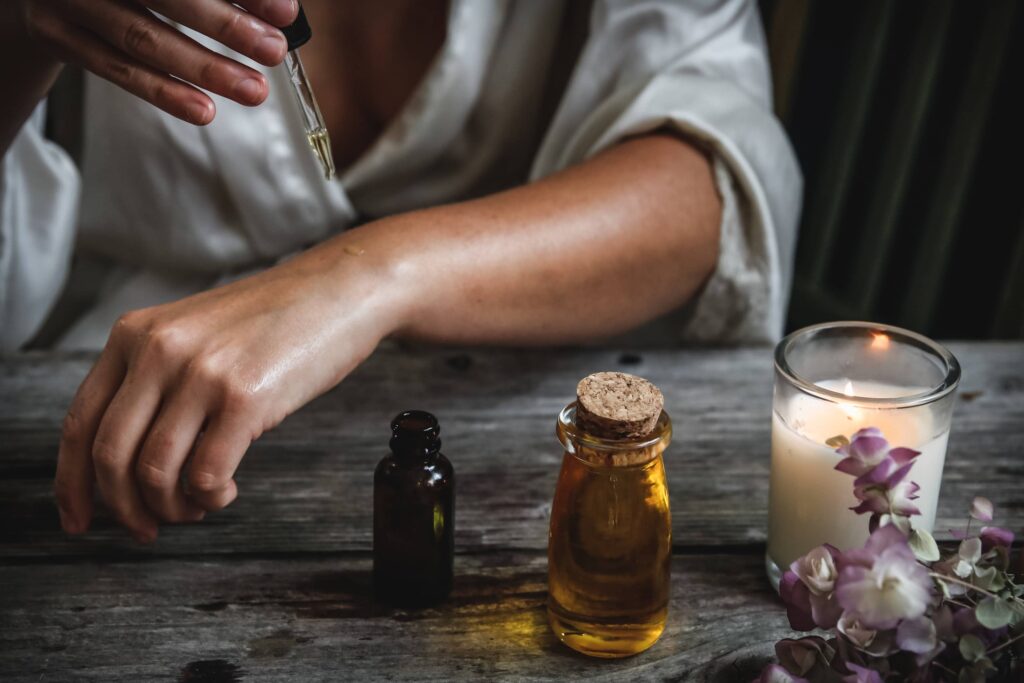
Abhyanga
Another wonderful thing you can add to your bedtime routine to help induce sleep naturally is Abhyanga, or a warm oil massage. Abhyanga comes from the Ayurvedic tradition and is super relaxing. While most Abhyanga massages are performed by a massage therapist, you can give yourself an oil massage for some of the same benefits.
There is no denying that a massage is super relaxing, which makes it the perfect addition to any bedtime routine. Consider giving yourself this oil massage before a bath or shower so that you don’t get your sheets all oily.
Optimize Your Bedroom
You might be surprised how many things in your bedroom could you keeping you from sleeping. We’re pretty sensitive creatures and sometimes the littlest thing can be keeping us awake. Since our environments can really affect how we're feeling, optimizing your bedroom one of the easiest natural ways to induce sleep.
Cool Room
Like we mentioned earlier, our bodies cool down before they fall asleep. If your room is too warm, it will be more difficult for your body to cool down, which will inhibit its melatonin production. But unlike the effects of a shower, which will wear off within a few hours, sleeping in a cool room can help you stay asleep all night.
The Sleep Foundation suggests that the ideal sleep temperature is around 65 degrees, but rooms with temperatures between 60 to 68 degrees will help stimulate the production of melatonin.
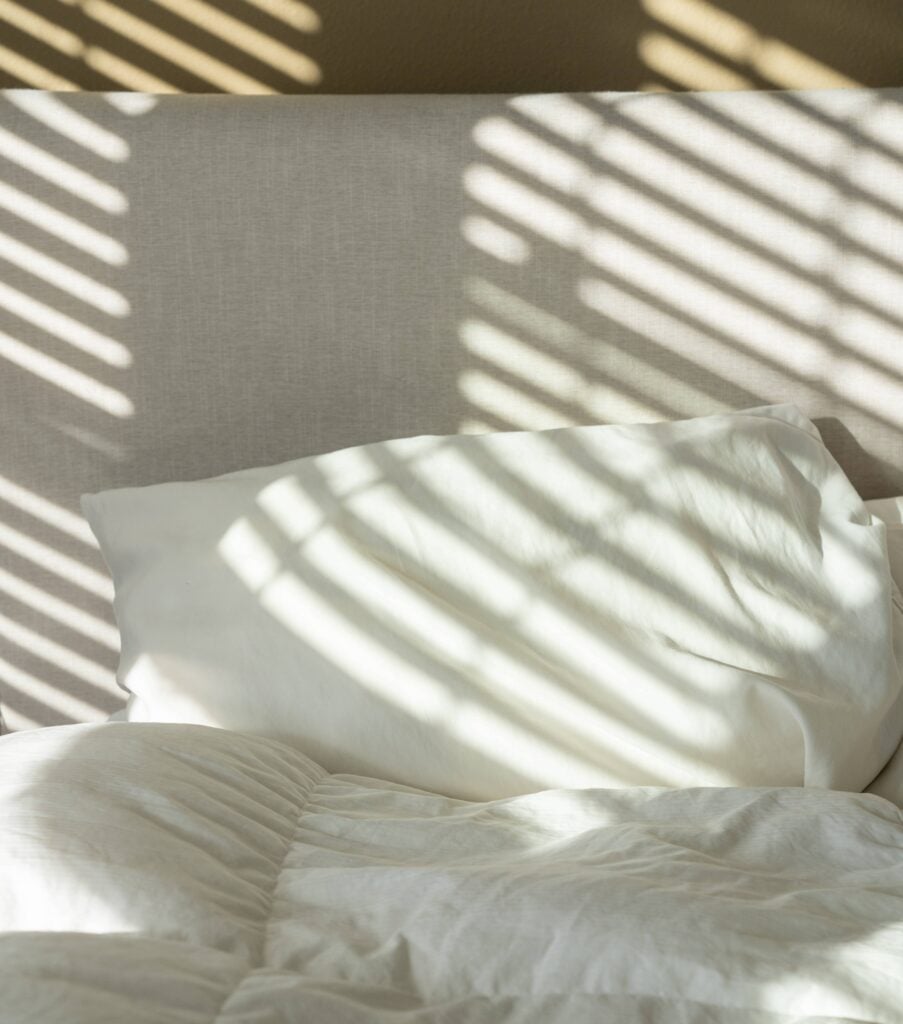
Weighted Blanket
Sleeping in a cozy, comfy bed is sure to help most people fall asleep faster, but a lot of people swear by using a weighted blanket. Weighted blankets usually weigh between five and twenty pounds and work by applying pressure all over your body.
This pressure can help reduce anxiety, calm your nerves, and even trigger natural chemicals like oxytocin and serotonin. These natural chemicals both help promote feelings of relaxation and can reduce stress all while being an awesome way to induce sleep naturally.
Acupressure
Speaking of pressure, let’s dive a little bit into the healing practice of acupressure. The sister therapy to acupuncture, acupressure uses a form of massage instead of needles to activate certain pressure points. Certain pressure points are associated with relaxation and sleep, which makes acupressure one of the best natural ways to induce sleep.
If acupressure sounds like it would work well for you, you can try the spirit gate point, the three yin intersection, the bubbling spring, the inner frontier gate, and the wind pool pressure points. You might even consider visiting an acupuncturist so that they can guide you to the best points for you.
Herbs and Supplements
It’s no surprise that one of the most common natural ways to induce sleep is through specialized herbs and supplements. While most good sleep starts with good sleep practices and habits like I mentioned above, supplements can definitely provide an added sleep boost.

Ashwagandha
Ashwagandha is an adaptogenic herb, which means it helps our bodies cope with stress. If you’ve been experiencing stress and it has been affecting how well you sleep, ashwagandha might be the right supplement for you. Ashwagandha has been used for years in Indian and African traditional medicine to combat against both mental and physical stress.
Ashwagandha has been seen to influence sleep directly as well as decrease stress, which improves sleep indirectly. But like any supplement, you should check with your doctor before adding it to your herbal regimen.
Magnesium
Magnesium is one of the world’s most common minerals. Despite this, an estimated 75% of Americans are not meeting the recommended intake of magnesium. Magnesium plays an important part in the proper functioning of the human body.
On a chemical level, magnesium helps activate the parasympathetic nervous system. This is the system that helps our bodies become calm and relaxed.
Magnesium also regulates the hormone melatonin, which aids our body’s sleep cycles. As you can tell, magnesium is hugely important for our bodies when we want to calm down and sleep. Like Ashwagandha, consider talking to your doctor before beginning magnesium supplementation.
Meditation
Just like relaxation exercises like yoga Nidra and breathwork, meditation is an excellent sleep aid. When looking for natural ways to induce sleep, meditation is often one of the first things people will suggest. This is because meditation has numerous benefits and can improve sleep quality.

Progressive Muscle Relaxation
A lot of people love a form of meditation called progressive muscle relaxation. In progressive muscle relaxation, you tense certain muscles as you breathe in and then relax them when you breathe out.
You usually begin at the top of your body and make your way down to your toes. This practice works well for people who don’t realize how much tension they’re holding in their bodies.
You might not realize how tense your shoulders or your jaw is until you tense it and then release it. This is a great relaxation technique for those who want to feel more physically relaxed and are looking for a unique and natural way to induce sleep. You can do it on your own or by listening to a guided meditation online.
Body Scan
A body scan is a similar meditation technique to progressive muscle relaxation. But instead of tensing and relaxing as you go down your body, you just lightly scan over it by imagining some sort of light or color.
There are a ton of guided body scans on YouTube and they are really relaxing to listen to before bed. As you pay attention to the parts of your body and bodily sensations, you’ll help your body release tension and calm down, both of which aid sleep.
Natural Ways to Induce Sleep Overview
Overall, there are many ways to help your body fall asleep and stay asleep. Since everybody is different, it might take some trial and error to find the best option for you—and that’s okay. Give yourself grace as you work through a few of these natural options and I'm sure one will work for you.


LOVE THIS RECIPE?
LET US KNOW!